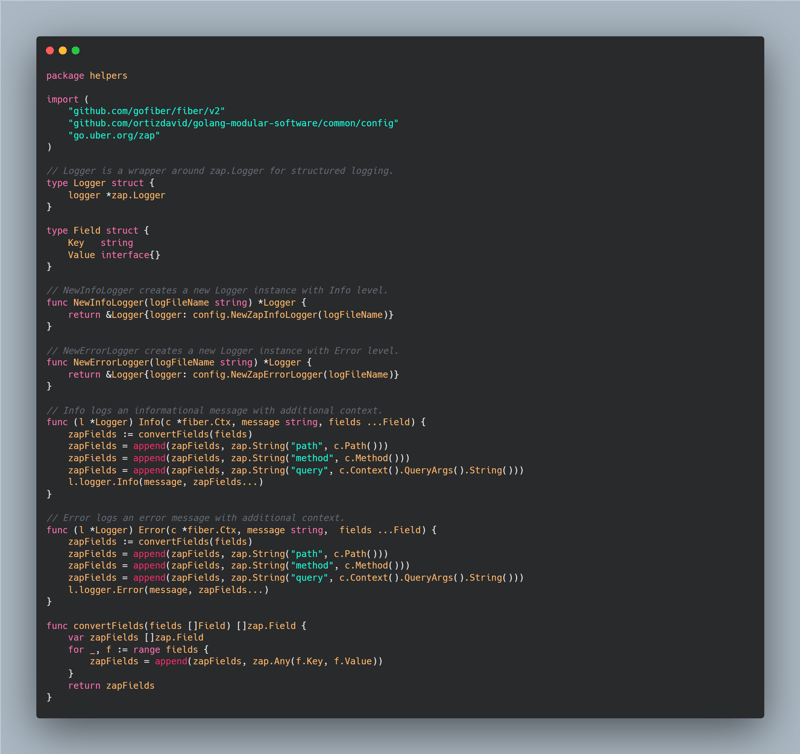Home >Backend Development >Golang >How to Handle Different Types of Logs in Go?
How to Handle Different Types of Logs in Go?
- Barbara StreisandOriginal
- 2024-11-08 08:30:02615browse
A practice that can help is to divide log files by type. The application can have logs for errors (or warnings) and for information (or successes).
Steps
- Define the environment variables for the logs (such as path, age, size, among others).
- Configure loggers, using a library or the Go standard library.
- Create an abstraction for log types such as Info and Error if necessary.
- Instantialize loggers in controllers.
Advantages
- Problem separation.
- Easy search for information.
- Better readability of logs.
- Personalized monitoring and alerts.
- Performance improvement.
- Ease of auditing and compliance.
- More efficient debugging and diagnostics.
- Security.
- Improved scalability.
Source Code
- https://github.com/ortizdavid/golang-modular-software







The above is the detailed content of How to Handle Different Types of Logs in Go?. For more information, please follow other related articles on the PHP Chinese website!
Statement:
The content of this article is voluntarily contributed by netizens, and the copyright belongs to the original author. This site does not assume corresponding legal responsibility. If you find any content suspected of plagiarism or infringement, please contact admin@php.cn
Previous article:How to Access the Response Body in a Go Reverse Proxy?Next article:How to Access the Response Body in a Go Reverse Proxy?

